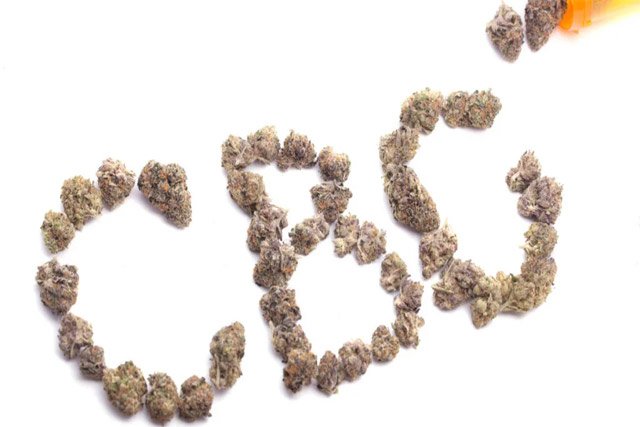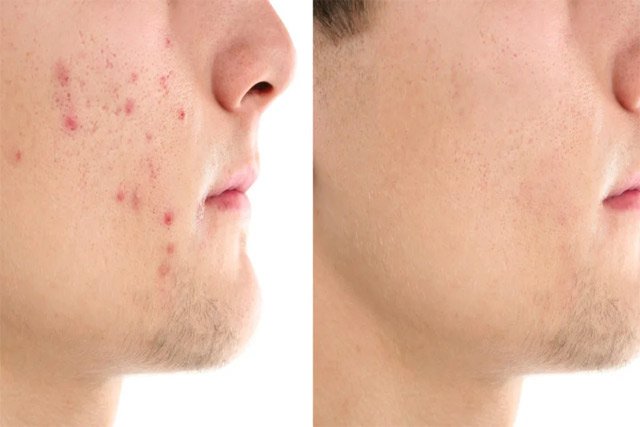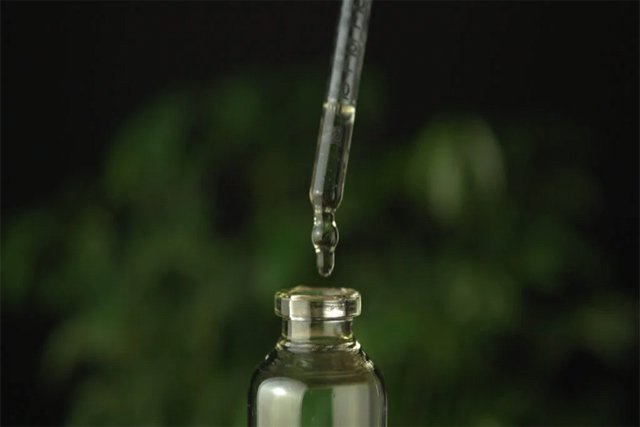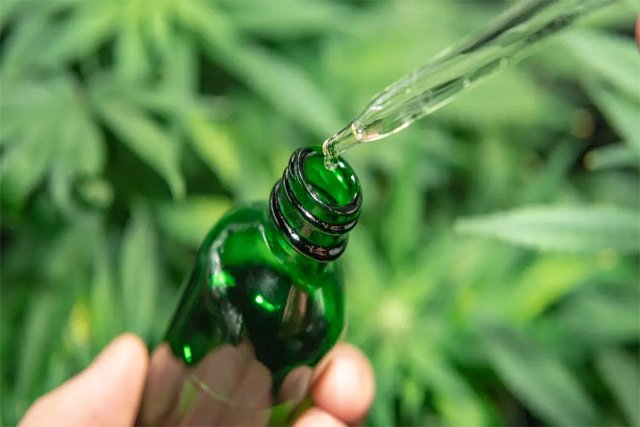Move over CBD and THC; there’s a new cannabinoid on the block – and it’s called CBC. A non-psychoactive substance derived from hemp, CBC has an array of intriguing therapeutic properties. Often consumed in tincture form, CBC oil is growing in popularity.
Cannabichromene (CBC) is a non-intoxicating cannabinoid that is naturally occurring in the Cannabis Sativa L. plant. CBC is found in lower concentrations than CBD and THC and is generally described as a secondary cannabinoid. CBC oil may have anti-inflammatory and neuroprotective properties. However, CBC is not yet approved as a treatment for any medical conditions.
Baffled about what CBC is and how it differs from CBD? Curious about how CBC could help you? Wondering how to take CBC oil? I’ve got the answers to all of those questions and more in this comprehensive CBC oil guide.
What is CBC?

CBC is one of more than 110 identified and isolated cannabinoids, a unique classification of compounds that are almost entirely found in hemp and cannabis plants. CBC is non-psychoactive, so it cannot get you high or stoned like THC. Interest in CBC is centered around the compound’s purported health benefits.
Compared to CBD and THC, researchers have a poor understanding of CBC. However, it appears that CBC does not bind with or inhibit activity at cannabinoid receptors in the endocannabinoid system (ECS). That’s somewhat surprising, given most cannabinoids do the majority of their work within this system.
Instead, CBC binds with TRPA1 and TRPV1 receptors, also known as the wasabi and vanilloid receptors. CBC’s actions on these receptors stop the breakdown of anandamide and 2-Arachidonoylglycerol (2-AG), two endogenous cannabinoids or endocannabinoids.
Therefore, CBC gives the ECS a nudge to function correctly, by increasing active levels of endocannabinoids, which do act on cannabinoid receptors.
Is CBC Legal?
Yes, CBC is a legal substance as long as it comes from a hemp plant with less than 0.3% THC. The federal government legalized hemp as part of the 2018 Agriculture Improvement Act (Farm Bill), describing “hemp” as the Cannabis Sativa L. plant and its derivatives.
Types of CBC Oil

The hemp industry is constantly expanding, and there are so many different products around nowadays. For newcomers, the market can be tricky to navigate, with products that sound similar but produce different effects. The same applies to CBC oil.
CBC-Isolate Oil
Pure CBC oil is hard to come by. Given its rarity, it’s usually quite expensive, too. But if you’re looking for CBC oil with no frills, then a product containing CBC-isolate extract is what you need.
CBC-isolate products are made by separating the CBC from the rest of the plant and diluting the purified extract in carrier oil. Hemp brands are turning toward coconut-sourced MCT oil, as this makes CBC more bioavailable. Increased bioavailability means increased potency.
CBC isolate or pure CBC oil is perfect if you’re concerned about failing a drug test, as these products contain zero THC. Tests only look for tetrahydrocannabinol. Even though CBC comes from hemp and cannabis, it won’t show up on a drug test.
Broad or Full-Spectrum CBC Oil
These tincture oils consist of a whole-plant hemp extract which is usually rich in CBD. But unlike classic CBD oil products, CBC tinctures have higher levels of CBC than you would usually expect to find. Oils with hefty concentrations of CBC are associated with extra therapeutic effects.
The synergistic entourage effect also shines through in broad and full-spectrum hemp products. Unlike CBC-isolate tinctures, these whole-plant oils contain a variety of cannabinoids, terpenes, and flavonoids, which all add to the potential health benefits.
Full-spectrum oils will have up to 0.3% THC, whereas broad-spectrum tinctures do not have any THC at all. The small quantity of THC helps with the entourage effect, but if you’re worried about drug tests, broad-spectrum oils still provide most of the benefits of a whole-plant solution.
CBC Oil with Delta-8
There is one way that CBC can be taken recreationally – when it’s combined with delta-8. The emergence of delta-8 has been remarkable, going from an obscure cannabinoid to a nationwide hemp favorite in a matter of months. That is, of course, because delta-8 provides a legal, THC-style high.
Some delta-8 products now contain CBC extract, too. The CBC complements delta-8’s psychoactive properties with mellowing effects but does not reduce the delta-8 high like CBD. Therefore, CBC is a popular addition to delta-8 oil for those who want to get relaxed and stoned.
But unlike the other CBC oil products featured, you can fail a drug test with these tincture oils. Even though delta-8 is legal in most states, it shows up on tests because it’s almost chemically identical to THC.
Exploring CBC Oil’s Effects
Compared to other fields of research, cannabinoid science is still in its infancy. Researchers didn’t identify the vast and complex endocannabinoid system or natural endocannabinoids until the 1990s. Hence, it’s no surprise that experts have barely scratched the surface of a secondary cannabinoid like CBC.
However, scientists have still made some fascinating discoveries concerning CBC’s possible therapeutic effects. I’m sharing them with you for informational purposes only – please don’t take this content as medical advice.
Anti-Inflammatory Effects

CBC has shown anti-inflammatory properties in early trials. While not unusual for cannabinoids to display anti-inflammatory effects, CBC’s effects are interesting since they are not ECS-related. Scientists are uncertain as to why CBC works as an anti-inflammatory.
But it’s a timely discovery. For decades, non-steroidal anti-inflammatory drugs (NSAIDs), like ibuprofen and naproxen, have ruled the roost. However, NSAIDs can cause nasty side effects, including stomach ulcers, headaches, and indigestion.
Going forward, CBC oil may help those affected by inflammatory conditions without creating a new set of health issues.
Benefits for Acne Sufferers

Acne sufferers have had several false dawns over the years, with many exciting new treatments emerging before ultimately flattering to deceive. But there’s hope that things could be different this time, thanks to CBC.
Acne causes whiteheads, blackheads, and pimples as hair follicles become blocked with oil and dead skin cells due to excessive sebum production. Many acne treatments stifle sebum, but in doing so dry the skin out too much.
CBC may regulate the production of this natural oil, unblocking hair follicles while keeping the skin moisturized. If future studies bear this out, CBC products could become a sustainable treatment for acne.
Neuroprotective Properties
CBC’s neuroprotective effects are raising hopes that cannabinoid concoctions may eventually help treat Alzheimer’s, Parkinson’s, and Huntington’s disease. The potential of CBC and other cannabinoids as neuroprotectants is so great that the US government has an active patent on these compounds for this very use!
Research into the neuroprotective potential of cannabinoids has been ongoing for decades. The British Journal of Pharmacology published an article in 2020 clarifying where the science is at with cannabinoids.
The paper specifically mentioned CBC as promising for seizures and hypomobility, Parkinson’s, and Huntington’s, with the study’s authors urging more research.
Antidepressant Effects

CBD’s mood-boosting properties are well-documented, but CBC might be even better. By blocking the degradation of anandamide, CBC essentially gives a leg-up to the body’s natural antidepressant.
With more anandamide available, the compound can better regulate the ECS and, subsequently, mood. If you haven’t heard of anandamide, it’s pretty similar to endorphins. If you’ve heard of the “runner’s high” before, anandamide is part of a cocktail of cannabinoids that contributes to that high!
But let’s not get ahead of ourselves with CBC’s potential. So far, the cannabinoid has only proven effective in mice. Rodent models are often a good indicator as to how a substance behaves in humans, but we cannot draw any definitive conclusions yet.
How to Get the Most From Your CBC Oil

Hemp brands usually focus on how CBC oil works best when taken under the tongue, a method known as sublingual absorption. That may be true, but it neglects the versatility of tincture oil products, which you can enjoy in a variety of ways. Let’s discuss.
Sublingual absorption is the most efficient consumption method, fast-tracking CBC into the bloodstream. If you need fast relief, perhaps from sudden pain or inflammation, sublingual absorption is ideal.
Hold the oil under your tongue for about 45 seconds to get relief within minutes that lasts for around three hours.
However, classic oral consumption translates to longer-lasting effects. Swallowing CBC oil directly, mixing it with beverages, or adding it to foods essentially turns your tincture into an edible.
The CBC hits more gradually when taken this way, but if you need several hours of relief, it’s a better option than sublingual absorption.
We have cannabinoid receptors in our skin, hence topical application is also possible with CBC oil. Rubbing CBC oil into the skin may relieve pain, inflammation, and acne, although it won’t work for mood-related issues.
Rather than applying CBC oil directly, I like to mix it with another cream first. Diluting the potent CBC oil extract means I can rub it in more liberally and cover a greater surface area.
What to Look For When Buying CBC Oil
The hemp market can be a little daunting for first-timers, with so many products to choose from. The lack of regulation in the industry just adds another layer of complexity. But buying CBC oil doesn’t need to be a chore. Look out for the following things, and you’ll be able to buy with confidence.
Third-Party Testing

Beware of CBC oil vendors that refuse to provide third-party testing results or certificates of analysis for their products. Independent lab-testing brings a layer of authenticity to an industry not currently regulated by the Food and Drug Administration (FDA).
With no recognized quality and safety standards, the hemp market is rife with scammers selling fake products. Third-party testing from trusted laboratories shows which brands are making genuine CBC oil and who you can trust.
There’s no excuse for a lack of transparency. Unapproved products may have less CBC than claimed (or none at all). They could also be cut with harmful ingredients or contain nasty solvents due to inferior manufacturing processes.
Product Potency
Always check how strong your CBC oil is and if it contains any other cannabinoids, such as CBD or delta-8, before purchasing. High-strength CBC oil mixed with other non-intoxicating cannabinoids will have a more sedative effect than weaker products.
Meanwhile, CBC oil infused with delta-8 is psychoactive and presents the risk of failing a drug test. The mind-altering effects are a treat if you want to get high but less appropriate if you’re seeking therapeutic relief.
Other ingredients
Keep an eye out for other ingredients, like MCT oil and terpenes. CBC products with MCT oil are more potent than those without, while tinctures containing terpenes deliver slightly different effects, depending on the terpenes. Some brands manufacture tincture oils with terpenes especially designed for boosting focus, increasing energy, or promoting sleep.
Should I Buy CBC Oil?

In my view, CBC oil justifies the higher price tag if you need a specific type of therapeutic relief. For instance, the mood-boosting properties of CBC appear more potent than CBD’s. In this case, there is an advantage in choosing a CBC-specific product over a traditional full-spectrum hemp product.
CBC oil blended with delta-8 is an attractive option if you want mellow undertones to accompany your high. As stated earlier, CBC offers relaxation without reducing delta-8’s psychoactive effects.




